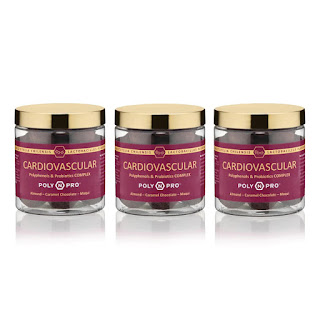The Sweet Solution: Exploring Inflammation-Reducing Supplements, Including Chocolate
Inflammation is a natural response by our body's immune system to fight off infection, injury, or disease. However, chronic inflammation can lead to various health issues, including heart disease, diabetes, and arthritis.
While maintaining a balanced diet and healthy lifestyle are key to managing inflammation, certain supplements can also play a significant role in reducing inflammation. One surprising contender in this realm is chocolate.
Yes, you read that right – chocolate! But before you raid your nearest candy store, let's delve into the details of how chocolate, particularly dark chocolate, can be a delicious supplement in your anti-inflammatory arsenal.
Understanding Inflammation
Before we talk about the sweet stuff, let's understand inflammation. It's the body's natural response to injury or infection, characterized by symptoms like redness, swelling, heat, and pain. While acute inflammation is essential for healing, chronic inflammation, often caused by factors like stress, poor diet, and lack of exercise, can wreak havoc on our health.
The Power of Polyphenols
Now, let's talk about the star component in chocolate: polyphenols. These are micronutrients packed with antioxidants, known for their anti-inflammatory properties. Dark chocolate, in particular, is rich in flavonoids, a type of polyphenol, which have been shown to reduce inflammation and improve heart health.
Choosing the Right Chocolate
Not all chocolates are created equal when it comes to health benefits. To reap the anti-inflammatory benefits, opt for dark chocolate with a high cocoa content (70% or higher). This means it contains more cocoa solids and less sugar and milk, maximizing its polyphenol content.
How Chocolate Fights Inflammation
So, how exactly does chocolate combat inflammation? Studies suggest that the flavonoids in dark chocolate can inhibit certain pathways in the body that lead to inflammation. They also help relax blood vessels, improving blood flow and reducing blood pressure, which is essential for overall cardiovascular health.
Incorporating Chocolate into Your Diet
Incorporating dark chocolate into your diet doesn't mean indulging in a chocolate binge. Like any supplement, moderation is key. Aim for a small serving (about 1 ounce) of dark chocolate a few times a week to enjoy its anti-inflammatory benefits without overdoing the calories and sugar.
If you know about the probiotic health supplements, then you should also check my other blog post on Power of Probiotic Health Supplements
Other Anti-Inflammatory Supplements
While chocolate is a delicious addition to your anti-inflammatory regimen, it's essential to remember that it's not the only supplement out there. Other supplements known for their inflammation-fighting properties include:
1. Omega-3 fatty acids found in fish oil, flaxseeds, and walnuts.
2. Turmeric, a spice with potent anti-inflammatory properties.
3. Ginger, known for its ability to reduce inflammation and alleviate digestive issues.
Consult Your Healthcare Provider
Before adding any new supplement, including chocolate, to your diet, it's crucial to consult with your healthcare provider, especially if you have any existing health conditions or are taking medications. They can provide personalized advice based on your health status and help you incorporate supplements safely into your routine.
Final Thoughts
Incorporating supplements like dark chocolate into your diet can be a delicious way to fight inflammation and support overall health. Remember to choose high-quality dark chocolate with a high cocoa content, enjoy it in moderation, and combine it with other anti-inflammatory foods and lifestyle practices for optimal results. So, the next time you reach for a sweet treat, you can indulge guilt-free, knowing that you're nourishing your body and soothing inflammation one bite at a time.



Comments
Post a Comment